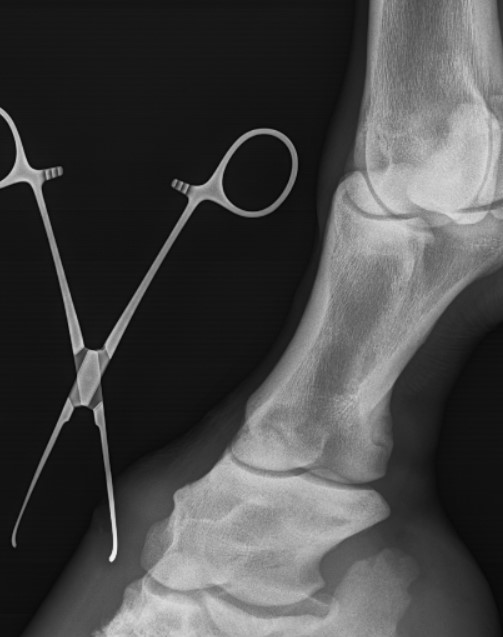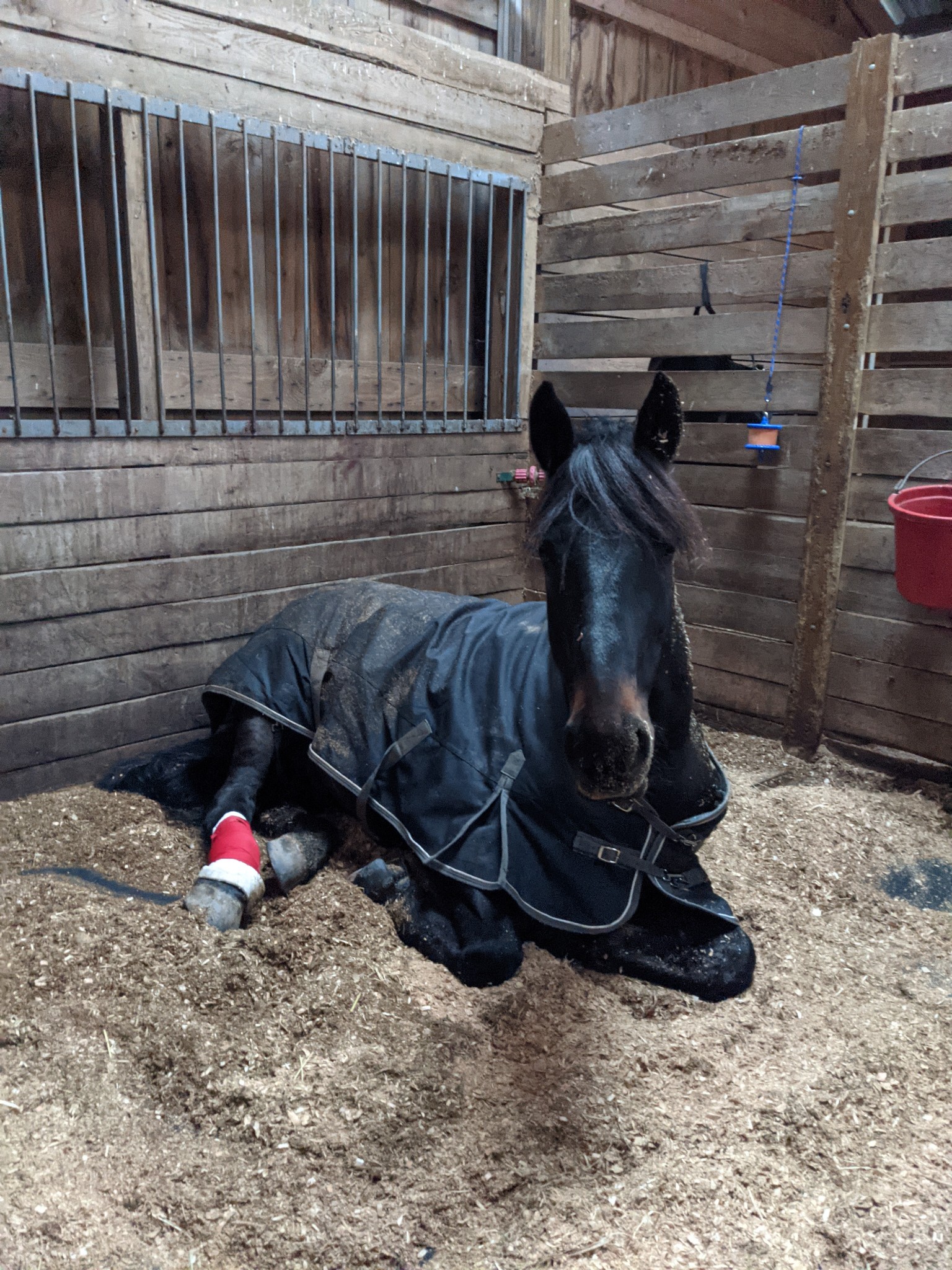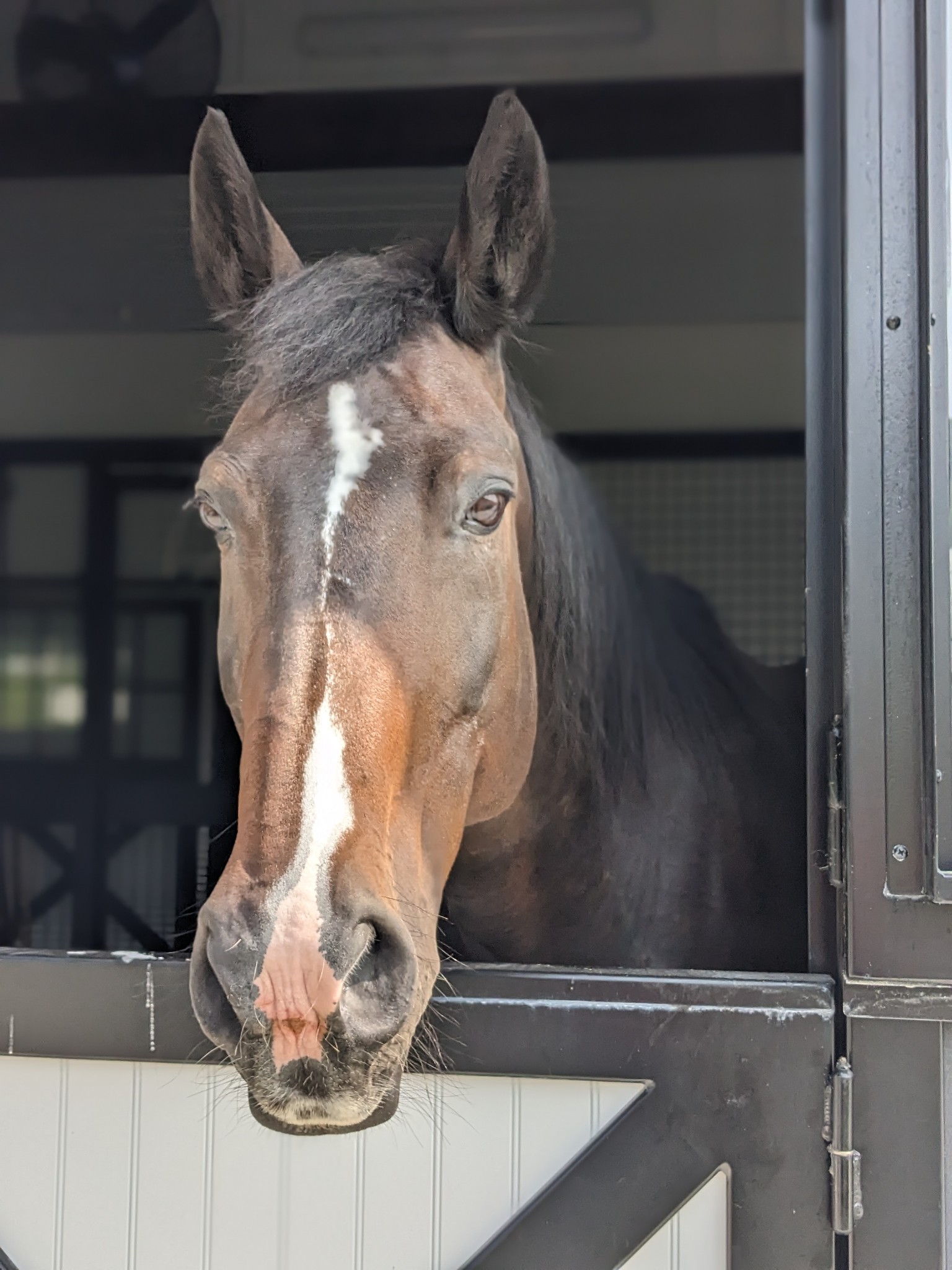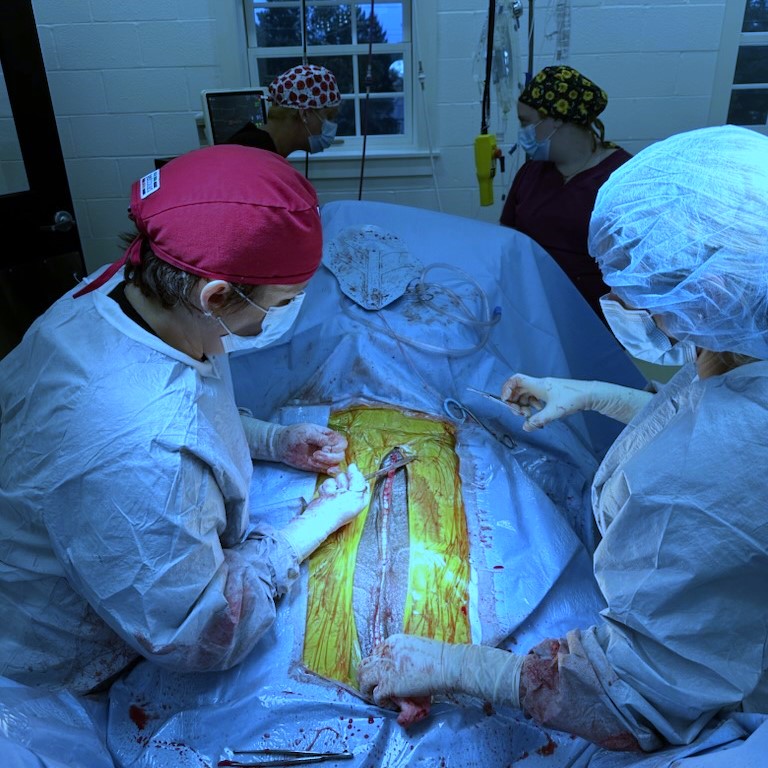Emergency Services
Abington Equine Hospital is proud to offer emergency equine veterinary services 24 hours a day 365 days a year. We provide emergency care within a 45 minute radius of our clinic, as well as haul-in emergency care.
Abington Equine Hospital is proud to offer emergency equine veterinary services 24 hours a day 365 days a year. We provide emergency care within a 45 minute radius of our clinic, as well as haul-in emergency care.

The veterinary staff at Abington Equine Hospital are well versed in a wide variety of caring for equine emergencies. Our veterinarian's advanced training has prepared them to manage situations including, but not limited to:
Though we do travel up to 45 minutes from our clinic for emergencies, we ask that our clients be prepared to haul into the clinic for supportive care - there is only so much we can do on the farm, and can be better equipped to help your horse at our clinic. Hauling your horse into our clinic can also allow for quicker surgical intervention if it becomes necessary.

The best way to help your veterinarian assess your horse's emergency is to give them as much information about the situation as you can. Some helpful information you can give your vet when you call is:

Sometimes it can be hard to tell whether you are having a horse emergency, or when you should get in contact with your vet. Some symptoms to look out for that warrant a vet visit include:
Please call if you are unsure if you have an emergency; our veterinarians will be able to help you determine what care the horse needs, and how quickly they may need to be seen.

Abington Equine Hospital has state of the art surgical suites designed for both routine procedures and emergency surgeries. Our surgeon, Dr. Catherine Radtke, has extensive training in surgical intervention. One of the most common threats to horses is colic; sometimes it can be managed medically, but other times surgery is necessary to resolve the issue. Abington Equine Hospital can provide your horse with surgical treatment of colic, to keep your horse happy and healthy.
Contact us at
(570)-904-8800
info@abingtonequine.com
156 Abington Lane Port Matilda, PA 16870